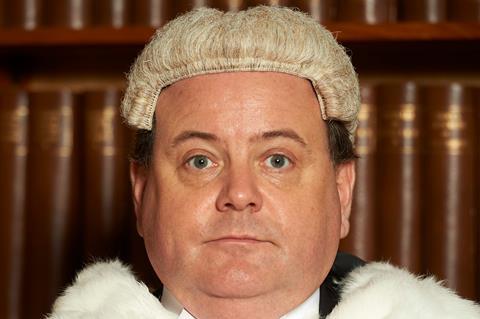The High Court has refused to grant an anonymity order to a clinical negligence claimant because the individual and his family had already featured extensively in media coverage.
In PMC v A Local Health Board, Mr Justice Nicklin said the extent of reporting on the claimant’s story would make any anonymity order ‘unjustifiable and futile’ and that the current application was ‘simply too late’.

The court heard that the claimant’s mother did not want to engage with the media regarding the claim, the circumstances of the claim or its value. The judge said: ‘That is, of course, her choice. But it does not affect the fact that historically she, and a solicitor acting on behalf of the claimant, have been quite willing to speak to the media about the claimant and to share substantial information which has led to the publication of [various] articles.
‘I am absolutely not criticising the claimant’s mother’s decision to share publicly information about them, but the decision to release so much information into the public domain through media reports has an inevitable impact on the extent to which it is possible, years later, whether legally or as a matter of practicality, to secure any meaningful anonymity for the claimant.’
The court heard that the claimant, who remains anonymous pending an appeal, was born in 2012 at one of the defendant’s hospitals and developed health problems. It was claimed that negligence led him directly to developing cerebral palsy. Liability has been admitted and a quantum-only trial has been fixed for 10 days in December 2025.
At the start of this month, the claimant’s solicitors issued the anonymity application, a day after being contacted by a journalist who had access to a copy of the particulars of claims and wanted to publish an article about the case.
The claimant’s mother (acting as his litigation friend) did not wish to engage with the media at all. But the family had previously featured in articles about the boy’s injuries, his difficulties and how well he was doing in the circumstances.
Preparing for the hearing, the judge had also searched the Westlaw databases and found the claimant’s surname, his mother’s full name and the date and brief details of orders made in proceedings.
Lawyers for the claimant acknowledged the importance of open justice but said there were rare occasions where this had to give way to the right to private and family life. It was also suggested that the order sought would not entirely prevent the reporting of any settlement, the name of the hospital and reasons for the award.
But the judge said the practical consequences of the existing media coverage would undermine any anonymity order. Unless previous articles were removed, the risk of jigsaw identification would place severe restrictions on the ability to report the litigation.
He added that when the claim was issued in 2023, no application was made for any derogation from open justice, whether in terms of anonymity or limiting the publicly available information about the claim. If there was a concern that the litigation was going to expose intensely private matters regarding the claimant’s disability and the support he now requires, an order should have been sought when the claim was issued.
Writing on LinkedIn, Dan Herman, head of personal injury at claimant firm Stewarts, said the judgment emphasised the need to apply for anonymity when proceedings are issued and to be cautious about dealing with the media.
He added: ‘Anyone accepting instructions in a case where it’s possible an anonymity order might be requested in the future should advise the client/litigation friend that any cooperation with the press will make it more difficult (if not impossible) to obtain an anonymity order in the future.’






























